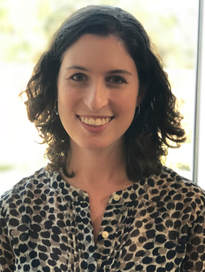 by Rabbi Shira Wallach You’re probably being bombarded with messages from TV, social media, friends, and random strangers to make sure you have a voting plan. I’m here to provide one more, as voting is a Jewish imperative. Pirkei Avot 3:2 teaches us that we must “pray for the government’s welfare, for without fear of it [we] would swallow each other alive.” One of the big questions that the rabbinic commentators raise is: if the Torah is supposed to be a book of law, then why do we have the first 1.5 books? Exodus 12 is when we first begin to receive commandments; the only mitzvah we receive in the book of Genesis is peru urevu, be fruitful and multiply.
One answer is: to establish a relationship and covenant between God and people; how could we possibly know whether we want to accept God’s laws with no understanding of how our relationship began? The other answer is: to prove how much we need laws. The world of Genesis, though full of promise and bright potential, is also replete with anarchy and corruption. In only the second parasha of the entire Torah, the world had become so evil that God had no choice but to bring a flood to annihilate all of creation except for Noah’s family and a pair of each animal. Soon after that, God rained sulfuric fire over Sodom and Gomorrah because the people of those cities had again succumbed to their basest animalistic instincts. Without laws, the foundation of a covenant, and a social contract in which we all understand what we owe one another, we are lost. The Talmud explicates this teaching further: “Just like the fish of the sea, each one that is bigger swallows his fellow; so too people, were it not for the fear of the government, each one who is bigger than his fellow would swallow his fellow” (Avodah Zarah 54b). Without a system of just laws, our society defaults to hierarchies of brute strength and size. We must pray for and take part in formation of a government because we rely on it for safety and vision. That being said, we must also tend to it, in partnership with God. The Bible shows us a progression of divinely-selected leadership, as priests, prophets, and kings are anointed to power by God alone. Ultimately, the Talmud establishes a change in approach, that God must choose leadership with our input (Berakhot 55a) by recalling Betzalel’s appointment as our ancestors’ sacred tabernacle architect and inserting a story in which God asks Moses and the people whether they agree that Betzalel is up to the job. Today, we must continue our partnership in the conversation so that the leaders we choose will represent our most cherished values. In addition to the Talmud, medieval law codes also emphasize the importance of staying involved in local and national politics. The Shulchan Aruch insists that if one pays taxes, one must vote “for the sake of Heaven” (Choshen Mishpat 163:1), that if one is supporting public funding for education, infrastructure, healthcare, or criminal justice, one must use her voice to determine how her funds ought to be distributed. Finally, Jews must vote because we care deeply about the outcomes. We care about how Jews are treated in our country and abroad; we care about our country’s relationship with Israel. We care about how our social values are expressed through our elected officials: fundamentally, we envision a world in which each person is given the dignity and agency to live a life of justice, liberty, and happiness. We endeavor to build a society that supports the downtrodden and lifts up the orphan, the widow, and the poor. We understand that God has granted us stewardship over the earth and that it is our duty to care for it. Ultimately, it is our responsibility to ensure—as much as possible—that the society we take part in reflects our most sacred teachings. And the way to do this is to vote. Visit votetexas.gov for more information about how to find your polling place. If you cannot drive yourself, there are organizations that will help you get there. I also heard on the radio today that Pizza to the Polls will deliver free pizzas if you’re waiting in a long line and hungry! You can’t beat that! See you in shul, Rabbi Wallach
0 Comments
Leave a Reply. |
Details
AuthorsShearith Israel clergy, staff and congregants share Archives
April 2023
Categories
All
|

 RSS Feed
RSS Feed